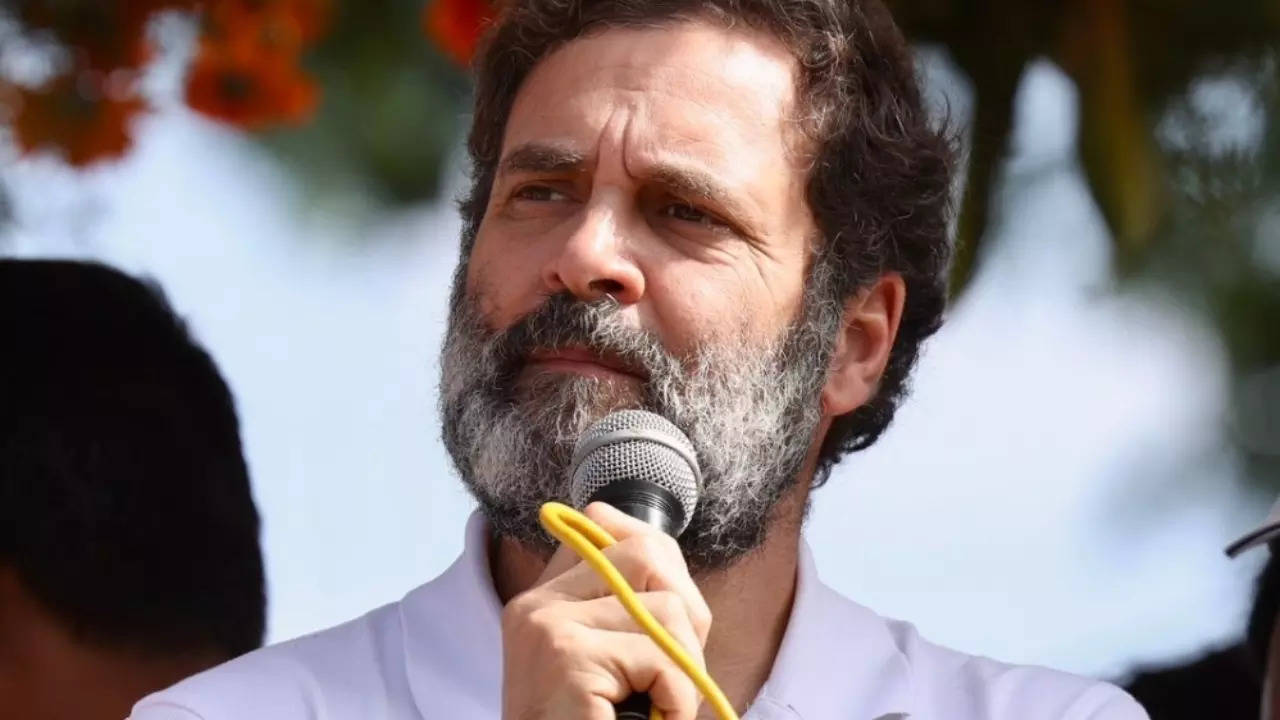New Delhi: Congress leader Rahul Gandhi moved the Supreme Court on Saturday challenging the Gujarat High Court’s July 7 order which dismissed his plea seeking a stay on his conviction in a defamation case over his “Modi surname” remark.
The appeal has been filed by Gandhi through advocate on record Prasanna S.
Gandhi was disqualified as a Member of Parliament on March 24, 2023 after a Gujarat court convicted him and sentenced him to a two-year imprisonment on charges of criminal defamation for comments he made about the Modi surname.
In a setback to 53-year-old Gandhi, the high court on July 7 dismissed Gandhi’s plea for a stay on his conviction, observing that “purity in politics” is the need of the hour.
A stay on Gandhi’s conviction could pave the way for his reinstatement as a Lok Sabha MP. However, he has not received any relief from either the sessions court or the Gujarat High Court.
In his verdict, Justice Hemant Prachchhak also noted that representatives of people should be “men of clear antecedent” and that a stay on conviction is not a rule, but an exception resorted to only in rare cases.
There was no reasonable ground to stay the conviction, he added.
Delivering a 125-page verdict, Justice Prachchhak had also said Gandhi, a former Congress president, was already facing 10 criminal cases across India, adding the order of the lower court was “just, proper and legal” in handing over a two-year jail term to Gandhi for his remarks.
The judge maintained it was not an “individual-centric defamation case”, but something which affected a “large section of the society”.
The court also noted Gandhi took Prime Minister Narendra Modi’s name in his speech to “add sensation” and with an intention to “affect the result” of the 2019 Lok Sabha elections. BJP MLA Purnesh Modi, the complainant in the defamation case against Gandhi, has also filed a caveat in the top court seeking that he be heard if the Congress leader moves a plea challenging the high court verdict refusing to stay his conviction in the Modi surname remark case.
A caveat is filed in an appellate court by a litigant seeking an opportunity of being heard if any order is passed on the appeal of an opponent challenging the order or judgement of the court below.
Purnesh Modi, a former minister in the Gujarat government, had filed a criminal defamation case in 2019 against Gandhi over his “How come all thieves have Modi as the common surname?” remark made during an election rally at Kolar in Karnataka on April 13, 2019.
A metropolitan magistrate’s court in Surat on March 23 this year sentenced the former Congress president to two years in jail after convicting him under Indian Penal Code (IPC) sections 499 and 500 (criminal defamation).
Following the verdict, Gandhi, elected to the Lok Sabha from Wayanad in Kerala in 2019, was disqualified as a Member of Parliament under the provisions of the Representation of the People Act.
Gandhi then challenged the order in a sessions court in Surat along with an application seeking a stay to the conviction. While granting him bail, the sessions court on April 20 refused to stay the conviction, following which, he had knocked on the doors of the high court.







